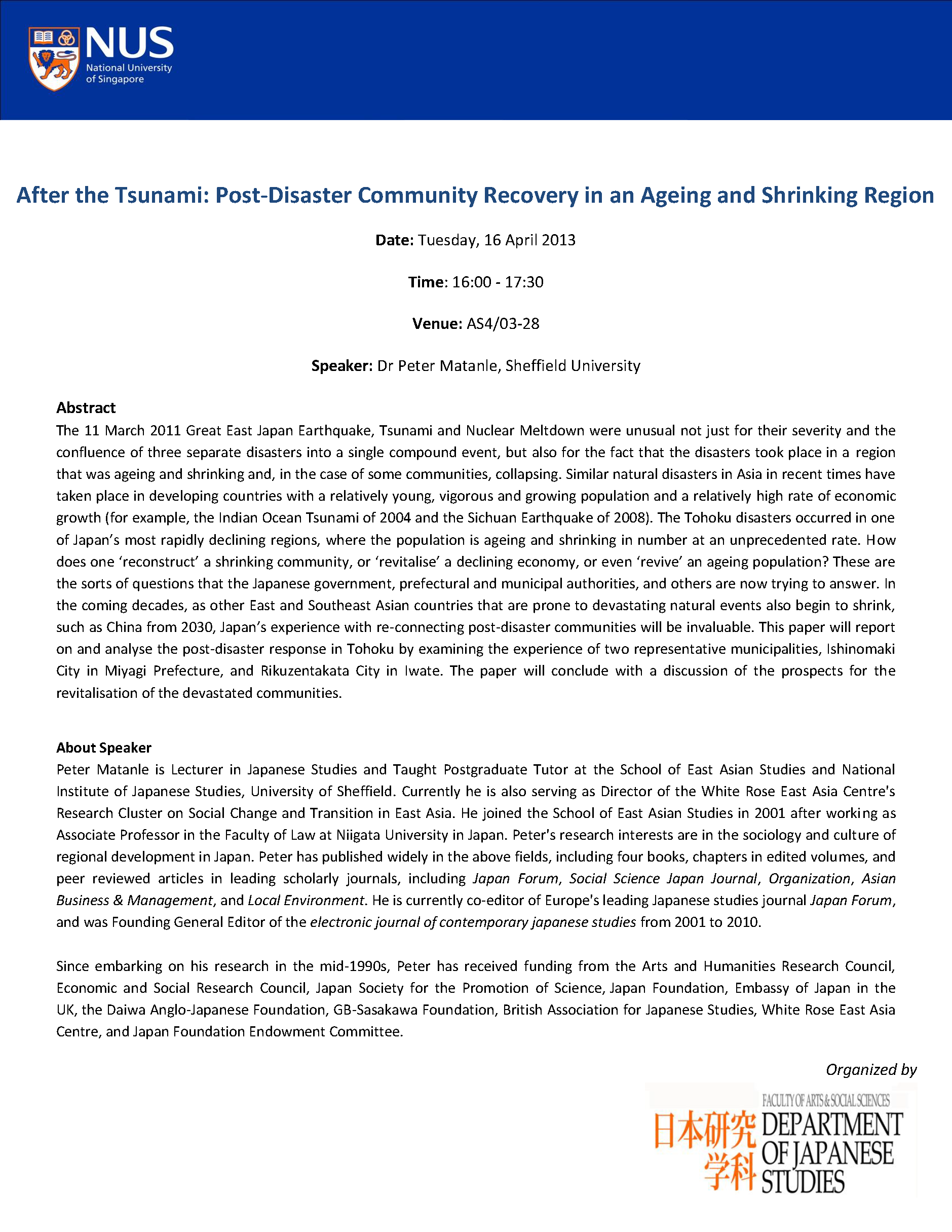After the Tsunami: Post-Disaster Community Recovery in an Ageing and Shrinking Region
Abstract
The 11 March 2011 Great East Japan Earthquake, Tsunami and Nuclear Meltdown were unusual not just for their severity and the confluence of three separate disasters into a single compound event, but also for the fact that the disasters took place in a region that was ageing and shrinking and, in the case of some communities, collapsing. Similar natural disasters in Asia in recent times have taken place in developing countries with a relatively young, vigorous and growing population and a relatively high rate of economic growth (for example, the Indian Ocean Tsunami of 2004 and the Sichuan Earthquake of 2008). The Tohoku disasters occurred in one of Japan’s most rapidly declining regions, where the population is ageing and shrinking in number at an unprecedented rate. How does one ‘reconstruct’ a shrinking community, or ‘revitalise’ a declining economy, or even ‘revive’ an ageing population? These are the sorts of questions that the Japanese government, prefectural and municipal authorities, and others are now trying to answer. In the coming decades, as other East and Southeast Asian countries that are prone to devastating natural events also begin to shrink, such as China from 2030, Japan’s experience with re-connecting post-disaster communities will be invaluable. This paper will report on and analyse the post-disaster response in Tohoku by examining the experience of two representative municipalities, Ishinomaki City in Miyagi Prefecture, and Rikuzentakata City in Iwate. The paper will conclude with a discussion of the prospects for the revitalisation of the devastated communities.
About Speaker
Peter Matanle is Lecturer in Japanese Studies and Taught Postgraduate Tutor at the School of East Asian Studies and National Institute of Japanese Studies, University of Sheffield. Currently he is also serving as Director of the White Rose East Asia Centre's Research Cluster on Social Change and Transition in East Asia. He joined the School of East Asian Studies in 2001 after working as Associate Professor in the Faculty of Law at Niigata University in Japan. Peter's research interests are in the sociology and culture of regional development in Japan. Peter has published widely in the above fields, including four books, chapters in edited volumes, and peer reviewed articles in leading scholarly journals, including Japan Forum, Social Science Japan Journal, Organization, Asian Business & Management, and Local Environment. He is currently co-editor of Europe's leading Japanese studies journal Japan Forum, and was Founding General Editor of the electronic journal of contemporary japanese studies from 2001 to 2010.
Since embarking on his research in the mid-1990s, Peter has received funding from the Arts and Humanities Research Council, Economic and Social Research Council, Japan Society for the Promotion of Science, Japan Foundation, Embassy of Japan in the UK, the Daiwa Anglo-Japanese Foundation, GB-Sasakawa Foundation, British Association for Japanese Studies, White Rose East Asia Centre, and Japan Foundation Endowment Committee.


